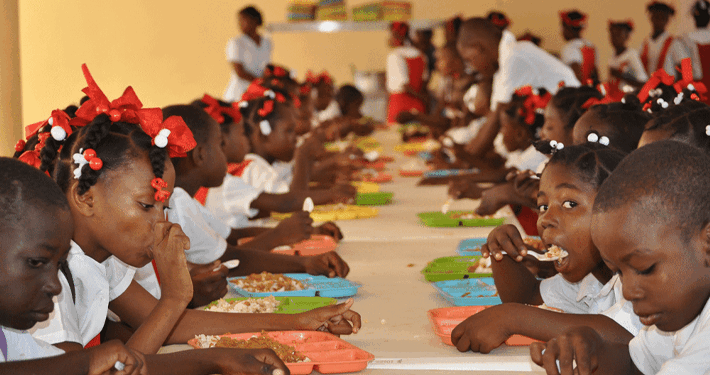The Federal Government has announced plans to expand the National Home-Grown School Feeding Programme (NHGSFP) to reach 50 million primary school pupils by 2026.
National Programme Manager, Dr. Aderemi Adebowale, of the National Social Investment Programme Agency (NSIPA), told the News Agency of Nigeria (NAN) in Abuja that the expansion would cover all primary school levels, from Primary 1 to Primary 6, while gradually including out-of-school children.
She noted that the programme is designed to provide daily nutritious meals to children across Nigeria, ensuring access to balanced nutrition as part of the government’s broader
“We are working to include early years – primary 1 to 3, primary 4 to 6 – in the school feeding programme, and also out-of-school children, which we are handling step by step to integrate.
“So, by the year 2026, we are looking at feeding close to 50 million pupils in primary school in Nigeria,” she stated.
Adebowale explained that the cost per child is projected to range between N500 and N1,000 per meal, which she said is sufficient to provide a nutritious and appealing plate.
She added that the agency would control costs by coordinating with small-holder farmers, aggregators, supply chain partners, and other stakeholders to agree on reasonable prices and ensure efficient service delivery.
What you should know
The expansion builds on the Alternate Education and Renewed Hope National Home-Grown School Feeding Project, launched on May 27, 2025, which aimed to reach 20 million out-of-school and underserved children across Nigeria.
The programme is part of the wider National Social Investment Programme (NSIP) and is implemented in partnership with the National Commission for Almajiri and Out-of-School Children Education and the National Identity Management Commission, focusing on providing meals, improving school participation, and supporting access to education for children in underserved and hard-to-reach communities.
The Nigerian government allocated N100 billion in the 2025 budget for the National Home-Grown School Feeding Programme (NHGSFP). The funding was intended to continue the initiative, providing meals to public primary school students across the country.
The programme also seeks to improve education and health outcomes for children while supporting local agriculture through partnerships with small-holder farmers and supply chain stakeholders.














